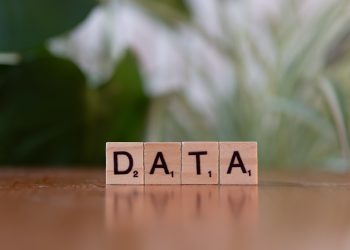No products in the cart.
AI Revolutionizes Real Estate Valuation: A New Era for Agents
Explore how AI is transforming real estate valuation, impacting agents, and shaping new career paths in the industry.
San Francisco, USA — In an era where technology often eclipses traditional methods, the real estate sector is experiencing a seismic shift. Artificial Intelligence (AI) is not just a buzzword; it is redefining how properties are valued, creating smarter brokers and agents along the way.
Once reliant on instinct, market trends, and good old-fashioned guesswork, real estate valuation is evolving into a precise science powered by algorithms. AI tools can analyze a vast array of data points—from neighborhood demographics to historical price trends—far beyond the capacity of any human agent. This shift is not merely a trend; it represents a paradigm change in how real estate professionals operate.

The implications are profound. Consider the story of Sarah, a 28-year-old real estate agent in Austin, Texas. Just a year ago, Sarah relied heavily on her intuition and experience to set property prices. Today, she uses AI-driven tools that provide instant, data-backed valuations. “It’s like having a crystal ball,” she says, emphasizing the confidence these tools give her when negotiating deals.
AI valuation models are not just making life easier for agents like Sarah; they are also enhancing the buyer experience. With access to real-time data, potential homeowners can make informed decisions, reducing the anxiety that often accompanies home buying. In a market where every second counts, this can mean the difference between landing a dream home or watching it slip away.
Critics argue that while AI can process data efficiently, it lacks the human touch—a critical component in real estate transactions.
But not everyone is convinced that AI is the panacea for all valuation woes. Critics argue that while AI can process data efficiently, it lacks the human touch—a critical component in real estate transactions. James, a seasoned broker in New York City, believes that the nuances of human emotion and intuition cannot be replicated by machines. “At the end of the day, people are buying homes, not just properties. They want to feel a connection,” he asserts.
Moreover, there are concerns about data privacy and the ethical implications of relying on AI. With algorithms trained on historical data, there’s a risk of perpetuating biases that could disadvantage certain neighborhoods or demographic groups. Advocates for responsible AI usage argue for a balanced approach, ensuring that technology complements human judgment rather than replaces it.
As the real estate landscape transforms, a new hybrid career is emerging—one that blends traditional real estate expertise with data analytics skills. Professionals who can navigate both worlds will stand out in the crowded marketplace. Companies are starting to look for “data-savvy” agents who understand both the human and technological sides of real estate.
The path forward for agents like Sarah is clear: adapt or be left behind. Training programs are springing up to equip agents with the necessary skills to thrive in this new environment. Workshops on data analysis, AI tools, and even ethical considerations in AI usage are becoming commonplace. The message is loud and clear: the future of real estate is here, and it’s digital.
Looking ahead, the integration of AI in real estate valuation is poised to reshape not only how properties are valued but also how agents interact with clients. As technology continues to advance, it will be crucial for professionals to embrace these changes proactively. The real estate market is not just about selling homes; it’s about building relationships in an increasingly complex digital landscape.
As the real estate landscape transforms, a new hybrid career is emerging—one that blends traditional real estate expertise with data analytics skills.
For those willing to embrace this transformation, the future holds immense potential. By harnessing AI’s capabilities while maintaining the human touch, agents can redefine their roles and bring unparalleled value to their clients. The message is clear: adapt, innovate, and thrive in the brave new world of real estate.











